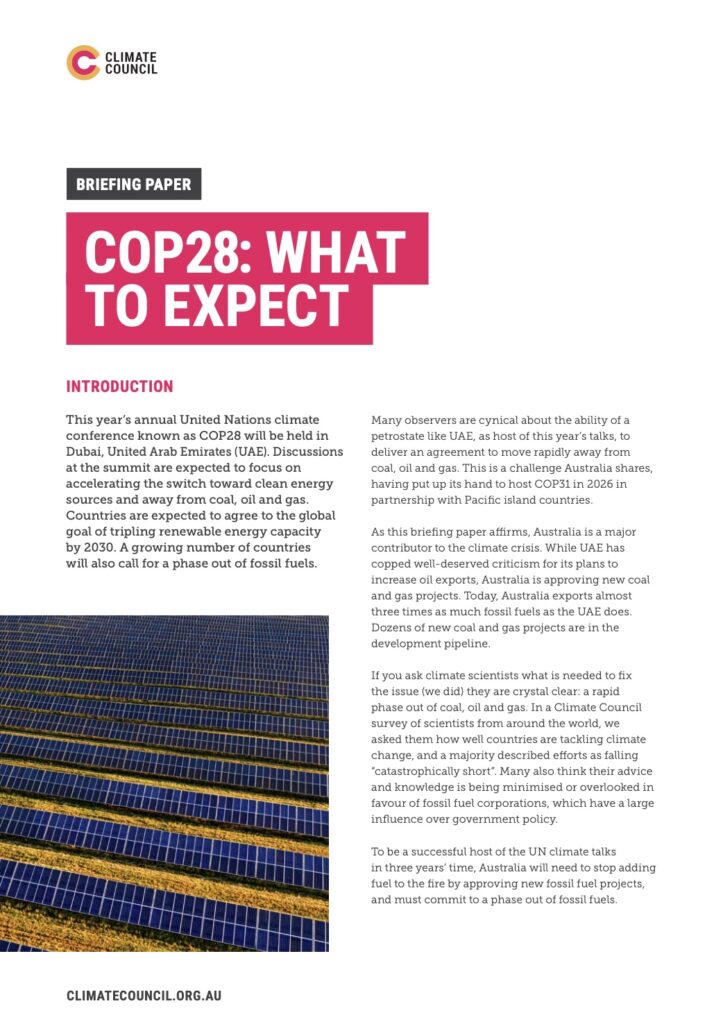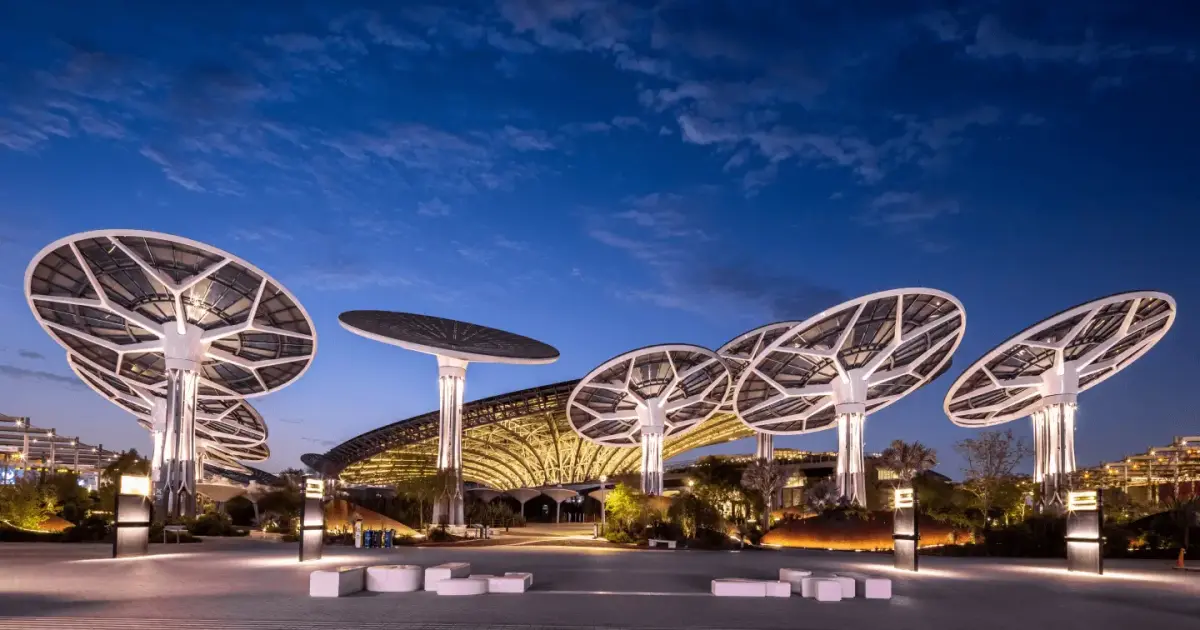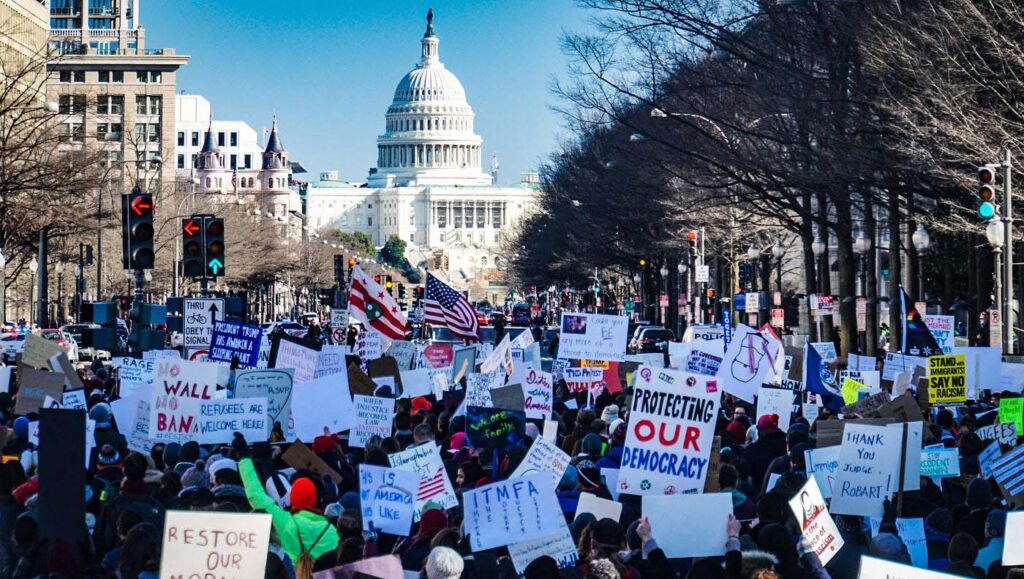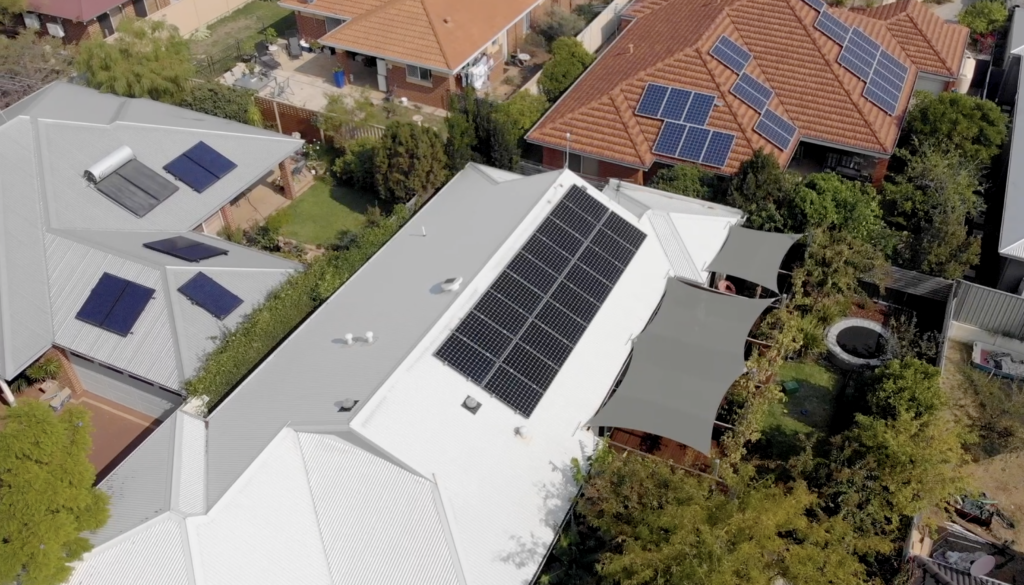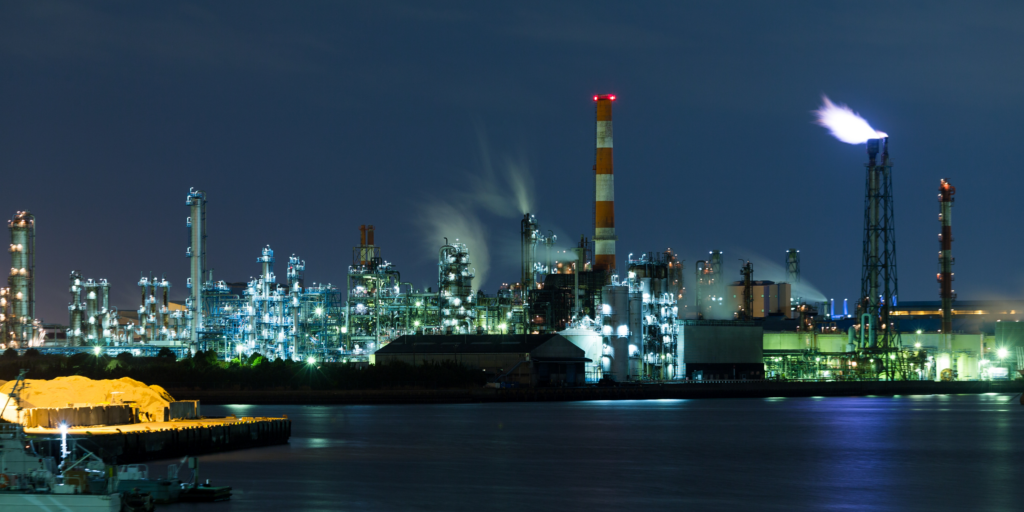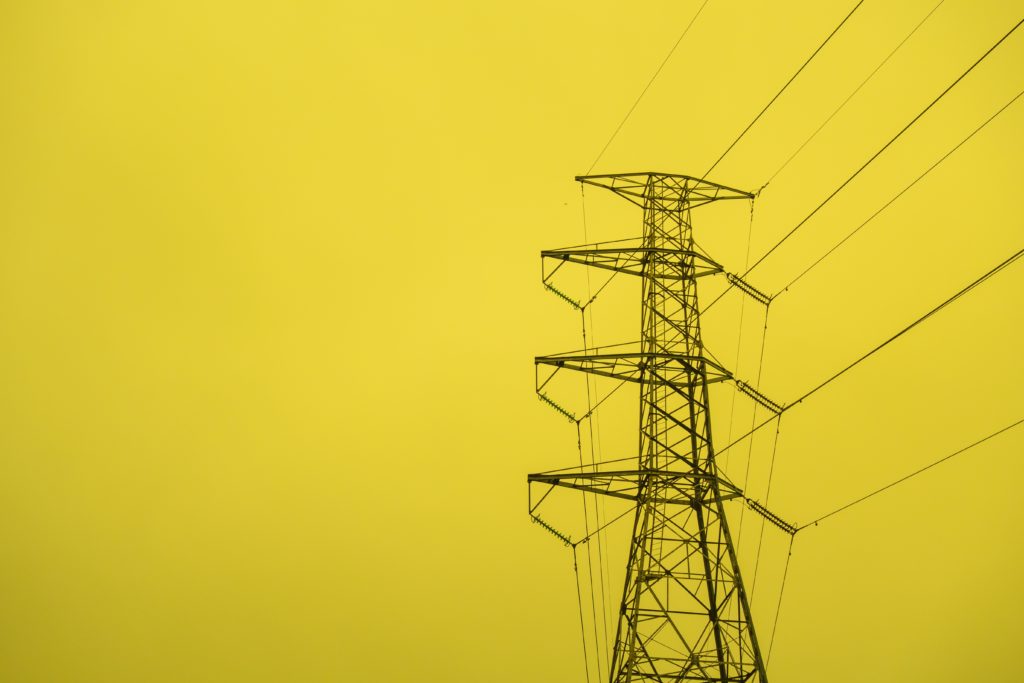This year’s annual United Nations climate conference known as COP28 will be held in Dubai, United Arab Emirates (UAE). Discussions at the summit are expected to focus on accelerating the switch toward clean energy sources and away from coal, oil and gas. Countries are expected to agree to the global goal of tripling renewable energy capacity by 2030. A growing number of countries will also call for a phase out of fossil fuels.
Many observers are cynical about the ability of a petrostate like UAE, as host of this year’s talks, to deliver an agreement to move rapidly away from coal, oil and gas. This is a challenge Australia shares, having put up its hand to host COP31 in 2026 in partnership with Pacific island countries.
As this briefing paper affirms, Australia is a major contributor to the climate crisis. While UAE has copped well-deserved criticism for its plans to increase oil exports, Australia is approving new coal and gas projects. Today, Australia exports almost three times as much fossil fuels as the UAE does. Dozens of new coal and gas projects are in the development pipeline.
If you ask climate scientists what is needed to fix the issue (we did) they are crystal clear: a rapid phase out of coal, oil and gas. In a Climate Council survey of scientists from around the world, we asked them how well countries are tackling climate change, and a majority described efforts as falling “catastrophically short”. Many also think their advice and knowledge is being minimised or overlooked in favour of fossil fuel corporations, which have a large influence over government policy.
To be a successful host of the UN climate talks in three years’ time, Australia will need to stop adding fuel to the fire by approving new fossil fuel projects, and must commit to a phase out of fossil fuels.
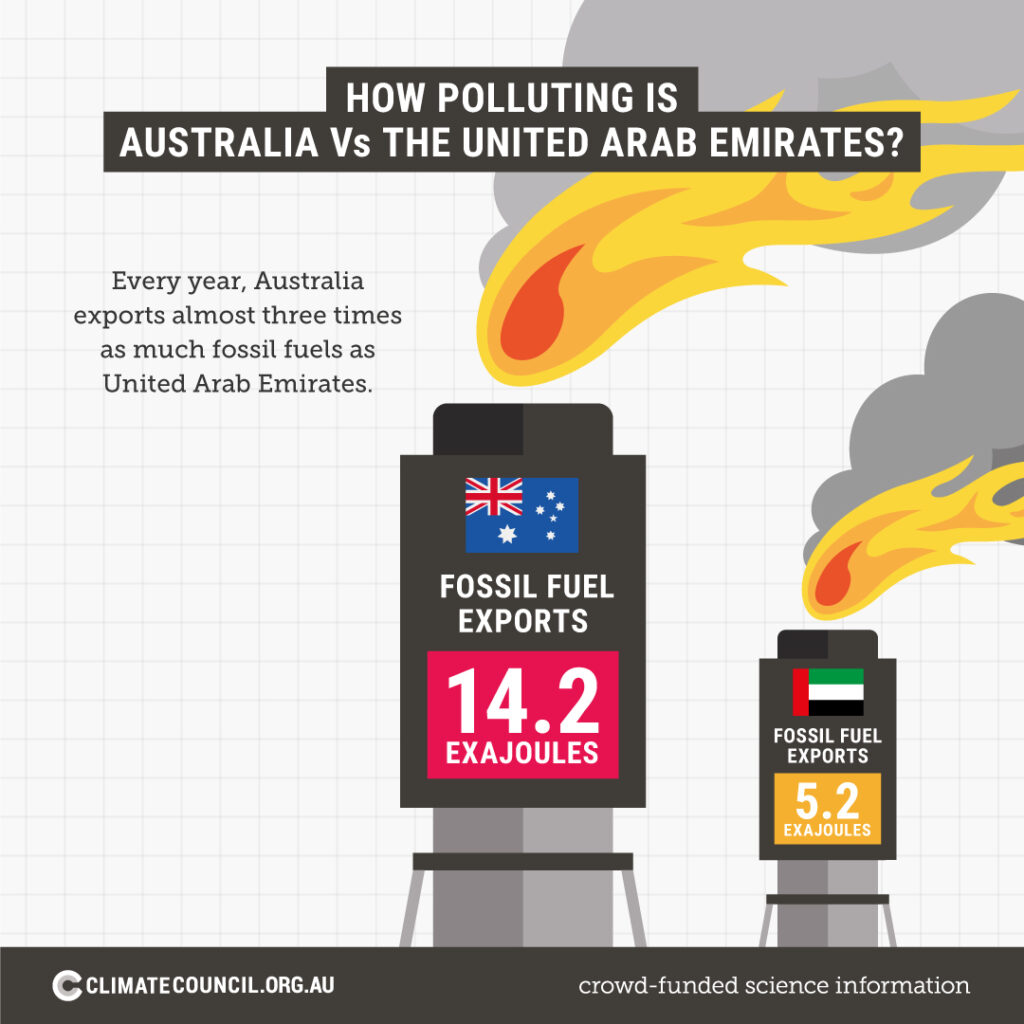
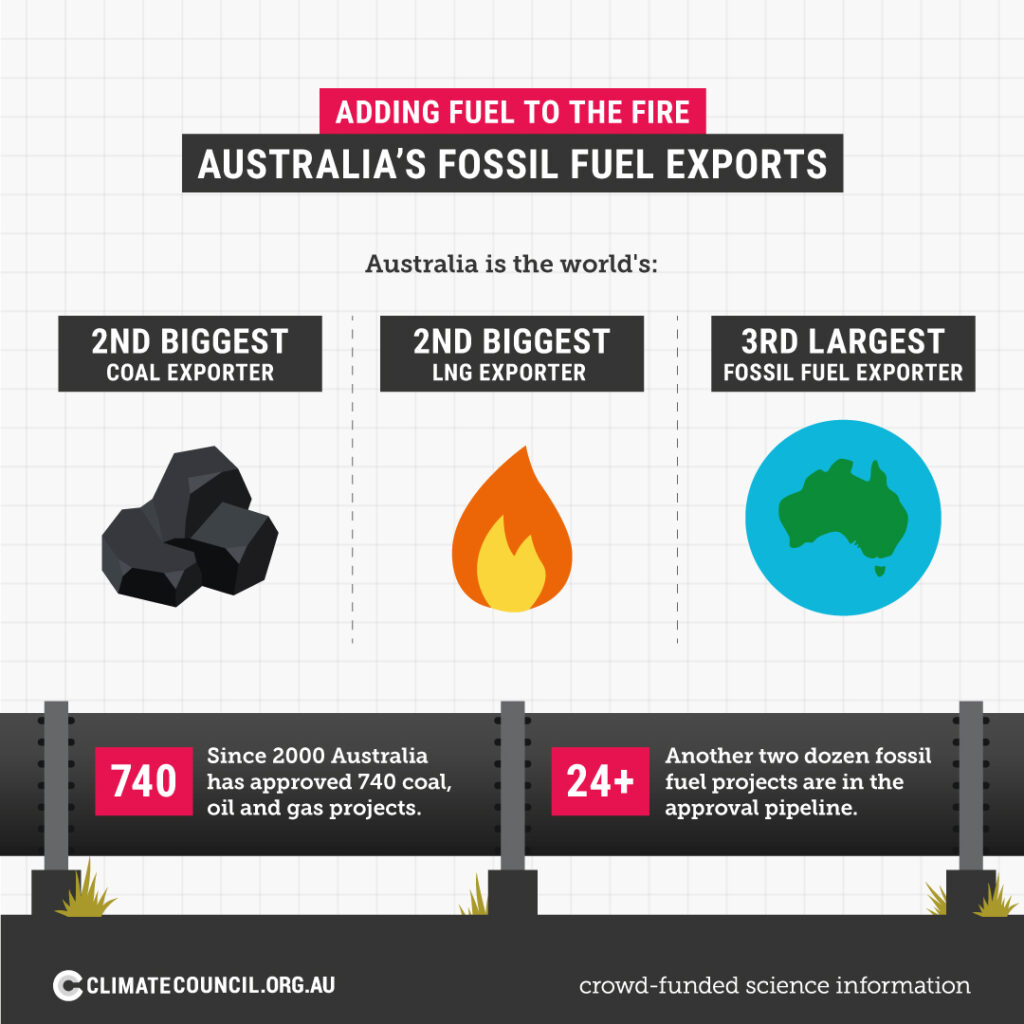
This briefing also explains how the world has changed since last year’s COP27 summit in Egypt. Over the past 12 months there have been terrifying climate-fuelled disasters and escalating conflicts around the globe. 2023 is on track to be the hottest year on record, with land and ocean temperature records shattered. The window for avoiding climate breakdown is fast narrowing and only decisive action can save us from catastrophe
Yet there is hope. The global energy transition is now underway and we have mature technologies readily available to replace fossil fuels in electricity generation and transport. Global demand for coal, oil and gas is expected to peak before the end of the decade, and decline rapidly after that. Electricity from renewable sources like solar and wind is already cheaper than coal and gas in most of the world, and solar energy – already the cheapest way to generate electricity in Australia – is expected to be cheapest almost everywhere by 2027. Sales of electric vehicles are taking off in Australia and booming in parts of the world. Governments must manage these now-inevitable changes.
Finally, this briefing explains what Australia must do to successfully co-host COP31 with Pacific nations. The Australian Government has made clear it wants COP31 to be a truly Pacific COP. It has also made a commitment to elevate First Nations voices and priorities.
If it’s to become a catalyst for stronger global action, the Australian Government will need to start championing the phase out of coal, oil and gas, in both its words and actions. It will also need to get squarely behind other long-standing regional priorities, such as funding to address loss and damage from climate impacts.
